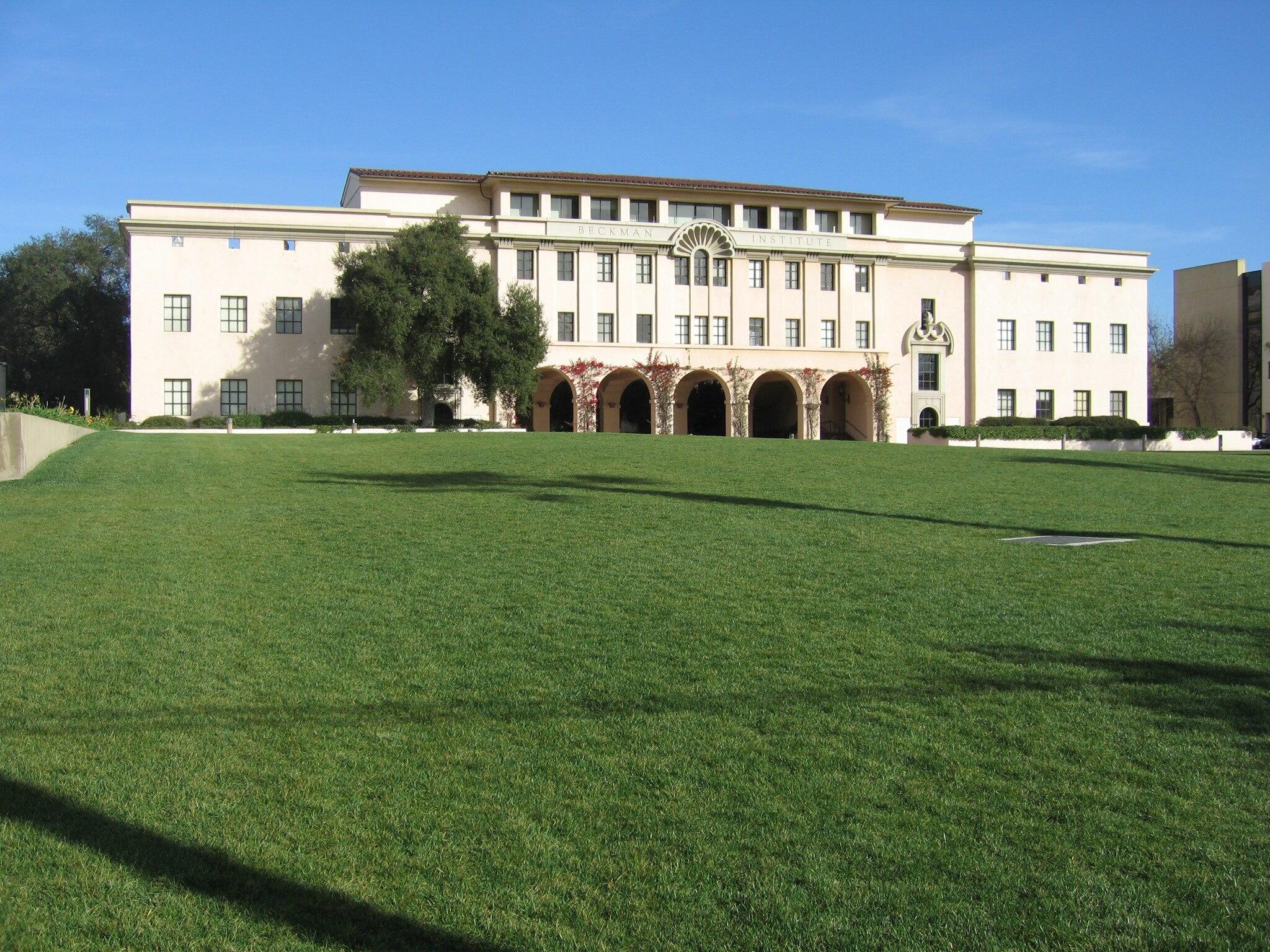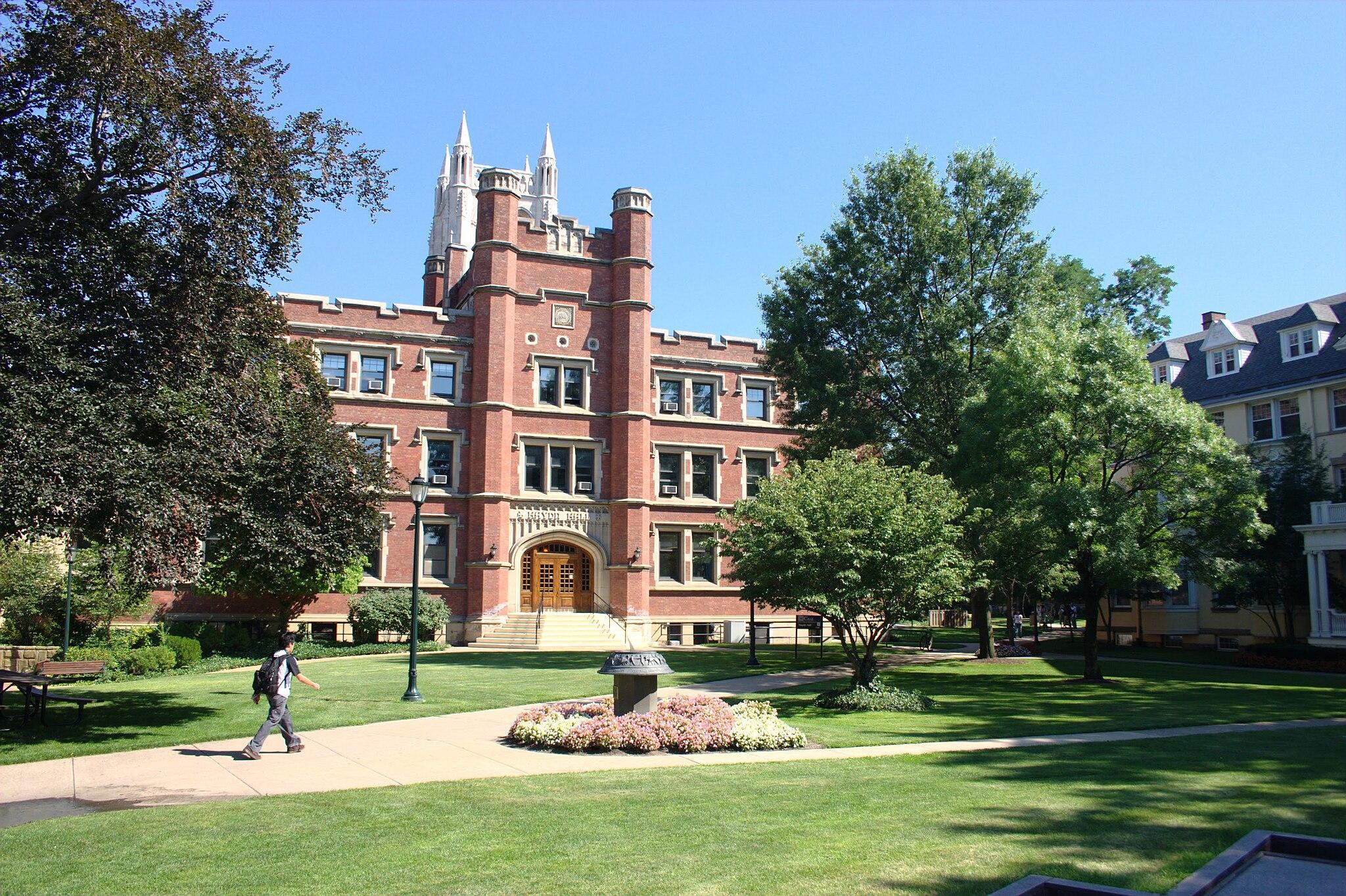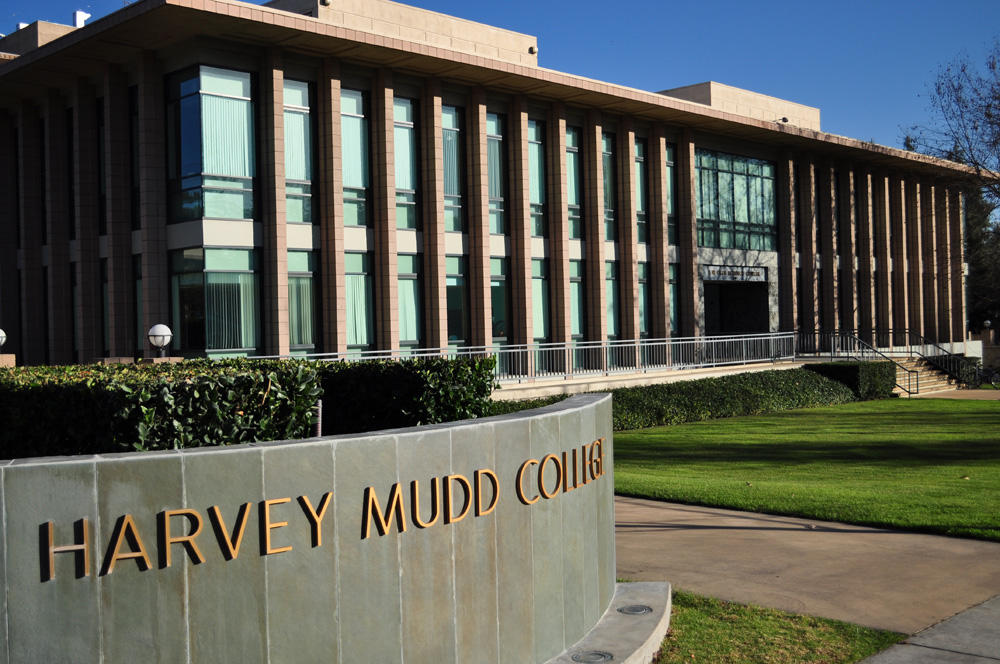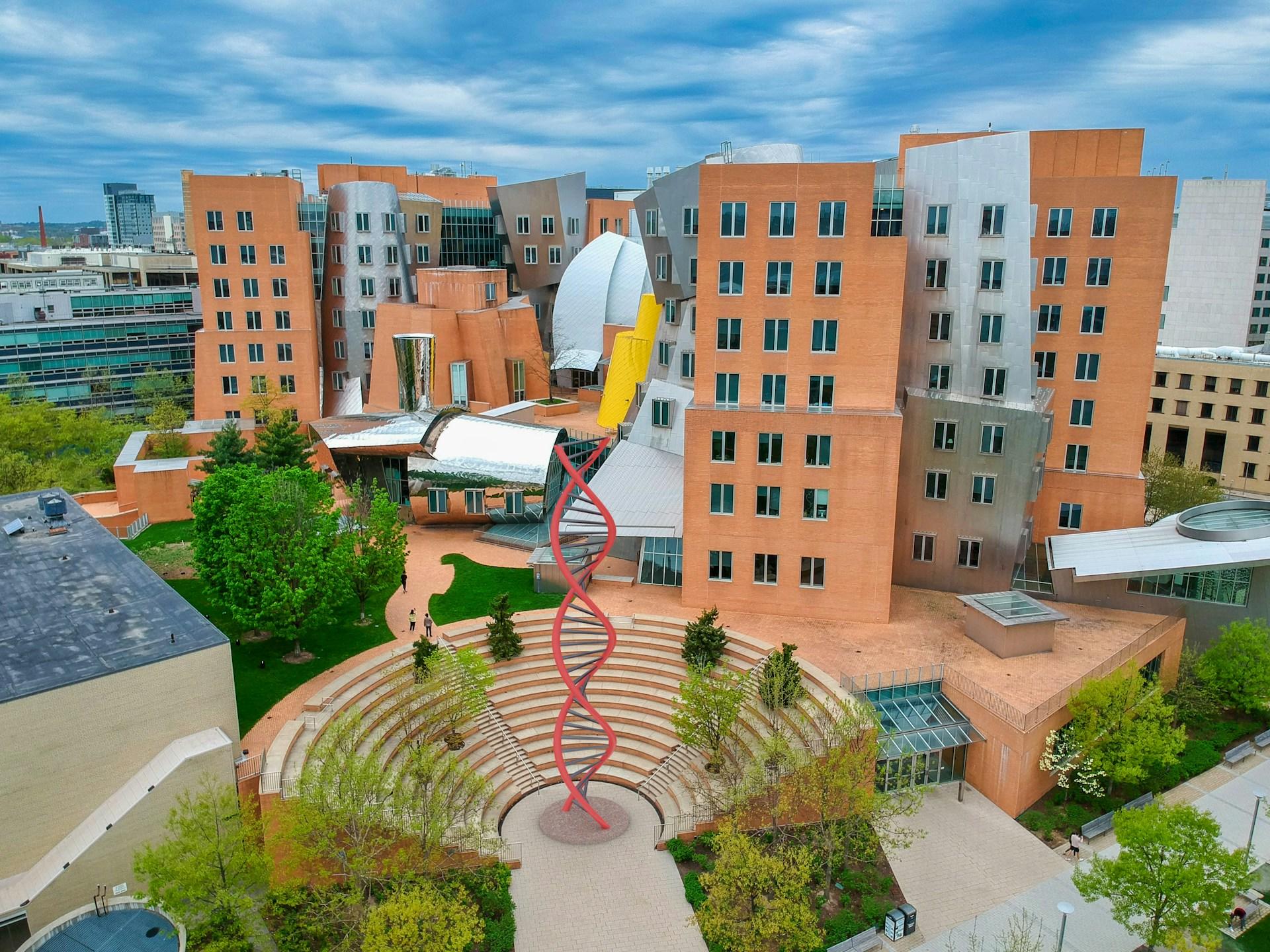If you're interested in physics or mathematical physics, you'll have to study. For most dedicated mathematical physics jobs, you'll need at least a graduate degree or maybe even a doctorate.
Since your education plays a crucial role in this kind of career, you must choose the right school with the right program.
Naturally, there are lots of schools to choose from, but we've shortened the list to include just 10 of the country's best schools for mathematical physics. Of course, this list won't be exhaustive, but it'll give you a good place to start looking.
| University | Location |
|---|---|
| California Institute of Technology | Pasadena, CA |
| Carnegie Mellon University | Pittsburgh, PA |
| Case Western Reserve University | Cleveland, OH |
| Harvard University | Cambridge, MA |
| Harvey Mudd College | Claremont, CA |
| Massachusetts Institute of Technology | Cambridge, MA |
| Pitzer College | Pitzer, CA |
| Princeton University | Princeton, NJ |
| Stanford University | Stanford, CA |
| University at Buffalo | Buffalo, NY |

California Institute of Technology (CalTech) – Pasadena, CA
The California Institute of Technology, which also goes by Caltech, comes highly recommended as one of the most reputable schools for physics in the country.

It also regularly ranks highly for other subjects, but the Division of Physics, Mathematics, and Astronomy is one of the top 10 in the whole world, not just the US!
Any students interested in mathematical physics would do well to start their search with Caltech and the physics programs they offer. However, it should be noted that, as with many of the top schools, competition is fierce for places on their programs.
Carnegie Mellon University – Pittsburgh, PA
Carnegie Mellon University's Physics Department has undergraduate, graduate, and research options available.

They're famously involved in work at the Large Hadron Collider, research into neutrino physics, experiments at Jlab, and many other groundbreaking projects.
As a relatively small physics department, they focus on specific areas of research including subatomic physics, quantum electronics, cosmology, and biological physics.
Carnegie Mellon University offers several different tracks for a B.S. in Physics as well as the option for students to pursue a double major or multiple degrees.
This is another school that's highly selective so make sure you have other options if you don't get into Carnegie Mellon University.
Discover professional physics tutors near me when you search on Superprof.
Case Western Reserve University – Cleveland, OH
Case Western Reserve University is a private university in Cleveland, Ohio and with an acceptance rate of around 27%, it's quite competitive, but not the most competitive school on our list.
For most undergraduate courses, students with a physics major have the option to choose more math classes as part of their degree, but at Case Western Reserve University, there's a dedicated B.S. Mathematical Physics Concentration degree program.

This is also a Bachelor of Sciences in Physics, but the goal is to train and educate aspiring physicists looking to focus on theoretical physics or mathematical physics.
Students can enjoy a graduate-level education from their undergraduate program when it comes to studying electromagnetism, quantum mechanics, and the mathematical methods used in theoretical physics.
If you already know that you want to become a mathematical physicist, then Case Western Reserve University should definitely be on your shortlist.
Harvard University – Cambridge, MA
Regardless of the subject, Harvard University pretty much always makes the list and has been comfortably within the world's top 5 universities across all subjects for over a decade. For physics, Harvard is comfortably in the top 5, too, and in certain rankings, is only second to MIT.
Find the help you deserve with a physic lesson here on Superprof.

At Harvard, there are joint concentration options for students including Physics-Astronomy, Physics-History of Science, and, most importantly, Physics-Mathematics, which is the main focus of what we're looking at right now.
At 3.2%, the acceptance rate for Harvard University is one of the lowest in the country so students applying will need an excellent academic record plus a lot more!
A backup plan is definitely recommended when applying.
Harvey Mudd College – Claremont, CA
Harvey Mudd College offers a Joint Major in Mathematics and Physics which would be perfect for undergraduates interested in mathematical physics.

The program is designed to prepare students for both fields, allowing graduates to move on to further study in math or physics or move straight into work.
This program is co-operatively run by Harvey Mudd College's Mathematics and Physics departments and students will have faculty advisors from both. In addition to math and physics requirements, this program also has scientific computation requirements.
While not as selective as Harvard, Harvey Mudd College still has a competitive acceptance rate.

Massachusetts Institute of Technology (MIT) – Cambridge, MA
Most conversations about top schools will also include MIT, which ranks #1 in the world across all subjects and #1 in the world for postgraduate programs.

While MIT doesn't offer a specific "mathematical physics" program, there are options in theoretical physics and physical applied mathematics and a flexible or focused track for undergraduate students.
The flexible track is for students looking for more options and can also leave them open to completing second majors. This also allows students to complete a group of three related subjects, which can include astronomy, computer science, quantum physics, or even mathematics.
In practice, these related subjects act much like a concentration, but at MIT, these are known as a "focus area". In either case, it means students can study mathematics and physics together and work towards becoming mathematical physicists.
MIT's acceptance rate is similar to that of both Harvard University and Caltech.
Pitzer College – Pitzer, CA
Pitzer College's acceptance rate is more favorable than some of the other schools that we've included so far, but it still comes highly recommended as one of the best schools for physics in the country.
At Pitzer College, the undergraduate physics major program focuses on computational and numerical modeling techniques.

The program here doesn't include a lot of requirements so students can pursue other interests and look to minor in related subjects or even go for double or dual majors, which can certainly help tailor your education to specific jobs in mathematical physics.
Princeton University – Princeton, NJ
Princeton University is another of the schools we've featured that has a focus on mathematical physics as a dedicated subject. Its mathematical physics group focuses on areas such as statistical mechanics, atomic and molecular physics, and quantum field theory.

Students in mathematical physics have access to faculty members from both the physics and mathematics departments, too.
Like a lot of the other schools we've mentioned, Princeton physics undergraduates also have the option to study abroad in their sophomore or junior years.
Stanford University – Stanford, CA
Stanford is one of the highest-ranked colleges in the country both across the board and for physics. The Physics Department at Stanford offers a highly recommended B.S. Its physics program can be completed in three or four years.
Stanford is another of the extremely selective schools that we've featured and it might even be the most selective one we've included. If you're applying to Stanford, it would definitely help to have a backup school in mind, too.

University at Buffalo – Buffalo, NY
Last but not least, we have University at Buffalo and its Mathematical Physics B.S. This is one of the few schools offering a dedicated mathematical physics program as opposed to a double major in math and physics or physics degrees with math minors or concentrations.
While run by the Department of Physics, UB's Mathematical Physics program is co-administered by the Department of Mathematics for students looking to move into applied mathematics, theoretical physics, or further study in mathematical physics.

Speaking of further study, nearly 75% of their students go on to graduate school, making UB an excellent option for aspiring mathematical physicists and those looking to go directly onto graduate programs or into academia.
Unlike the other schools on our list, UB has an incredibly high acceptance rate (at around 70%) with many of its graduates progressing to more selective graduate schools.
When combined, this makes UB a reputable and realistic choice for many students considering mathematical physics.
How to Choose the Best School
There's more to picking a school than just academic records. While these schools are good in an academic sense, there are other factors you should also consider. You know what type of person you are, what you like, and the kinds of environments you perform best in.
The best cities for mathematical physics tend to have good schools, research centers, etc., so it can also be more worthwhile to attend a school because of where it is and not just because of the school.
Other factors like location and cost should also be taken into account as there's no point in attending an otherwise excellent school if you're not going to enjoy being there and it's going to affect your academic performance, happiness, etc.
There are also financial considerations to look at and the cost of these schools is also worth looking into. Beyond that, you'll also want to see what scholarships and kinds of financial aid might be available as this could also help make the decision for you.
These schools are obviously a good place to start looking if you have aspirations of attending the best and most reputable schools in the country, but they're not the only choice and you can always take other things into consideration when looking for and applying to schools.
Embark on a journey of scientific discovery and intellectual growth with physics classes online, where the boundless expanse of the digital realm converges with the intricate beauty of the laws governing our universe, offering a dynamic platform for learning, collaboration, and exploration from the comfort of your own home.
Summarize with AI:















